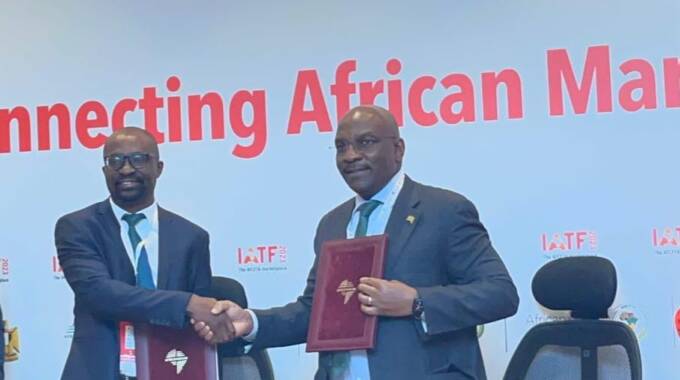CABS secures a US$40 million facility with Afreximbank

CABS managing director, Mehluli Mpofu, said the facility reaffirms the bank’s commitment to play its part as one of the key financial services providers in Zimbabwe.
“One of our key priorities is to appreciate and capacitate the export sectors of the economy by providing requisite working capital and capital expenditure facilities.
“In this regard, we continue to work with enterprises in agriculture, mining, energy, manufacturing, and tourism,” he said at the signing ceremony.
He added that the previous facilities have made a remarkable impact on capacity utilization and commerce through the acquisition of new plants and machinery.
“We have enabled the set-up of new operations and expanded existing operations in export, agriculture, and mining, in addition to import substitution and food self-sufficiency initiatives.
“The resultant export revenues, in addition to improvements in employment numbers, have positively impacted our economy,” said Mpofu.
The Trade Finance Facility has a 3-year tenure, which will go a long way toward supporting the productive sectors in Zimbabwe, including agriculture, manufacturing, and mining.
In terms of its development impact, the facility will assist a total of 573 small to medium enterprises over the course of three years, of which 75 percent will be made up of women and youth.
Afreximbank’s other facilities in the country include the US$110,4 million Zimbabwe Electricity Transmission and Distribution Syndicated Future Flows Facility, where they participated at a level of US$40 million together with Afreximbank and other lenders.
AfreximBank Vice President, Denys Denya, said the performance of these facilities has been exemplary and the bank has never had challenges.
He said the bank has also provided facilities to the Reserve Bank of Zimbabwe for them to manage, especially letters of credit, and these have performed very well.
“At the moment, we don’t have issues with facilities in Zimbabwe, but what we are looking at is how to add value to the commodities that are produced,” he said.
Afreximbank also has the CANEX program, which seeks to facilitate the development and growth of the creative and cultural industries in Africa and the African diaspora.
It provides a range of financing and non-financing instruments and interventions aimed at supporting trade and investment in Africa’s creative sector.
Denya said the creative interventions focus on creatives such as sport, films, and gastronomy.
“We have done film financing; Zimbabwe has the capability to resuscitate the arts industry as we don’t only provide loans but also linkages and capacity,” he said.
He said in terms of fashion, the bank has enabled fashion producers to go to Europe with their products, and this is also open to Zimbabwe.

